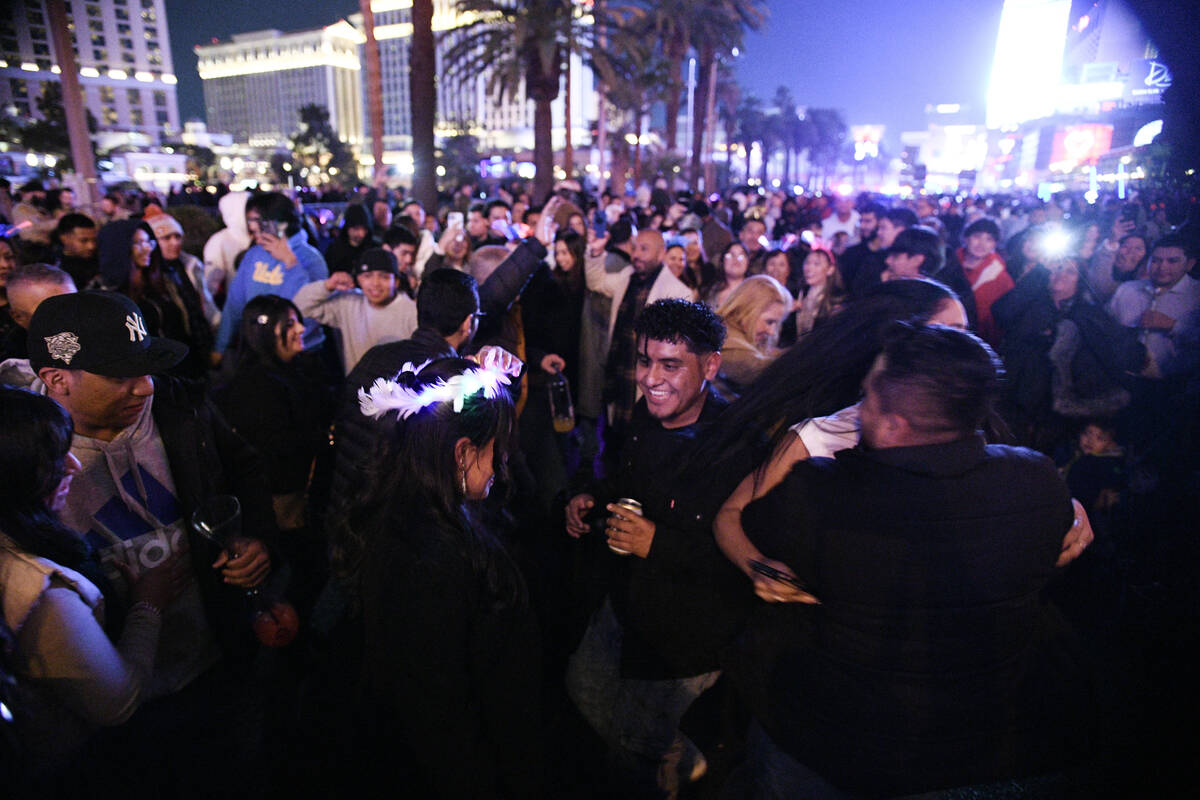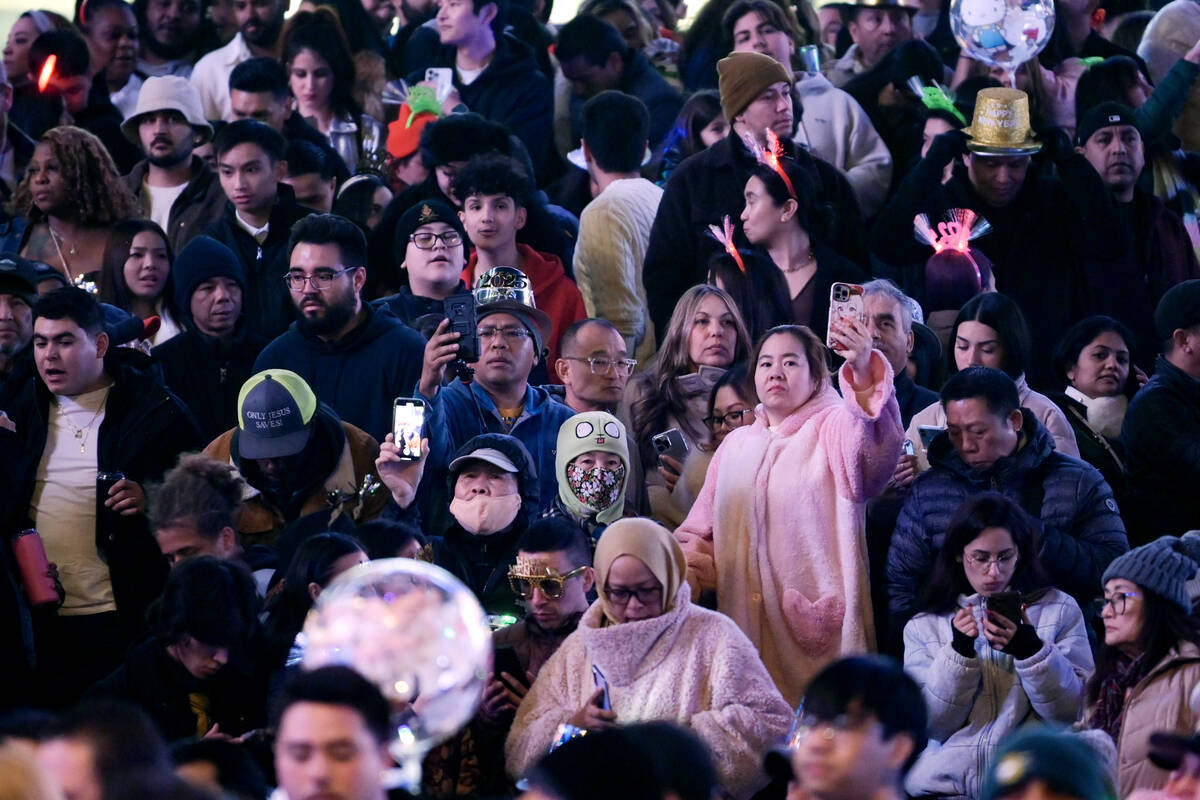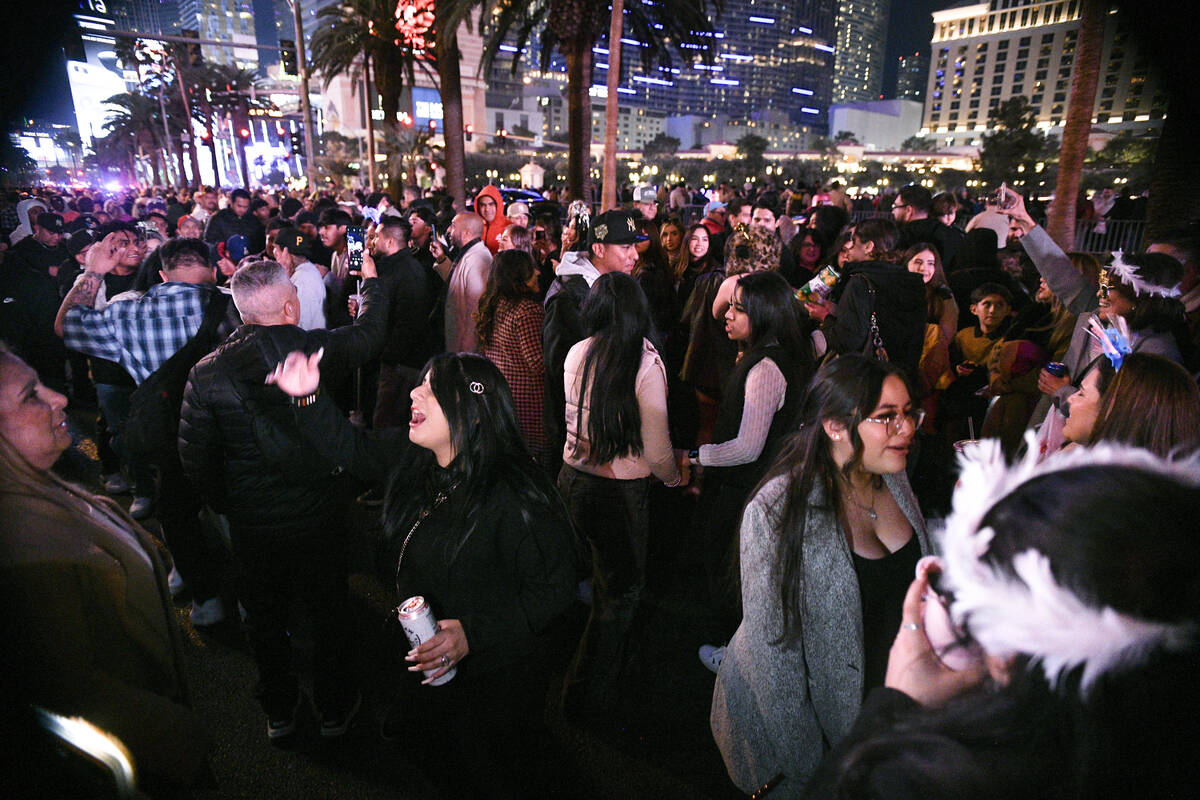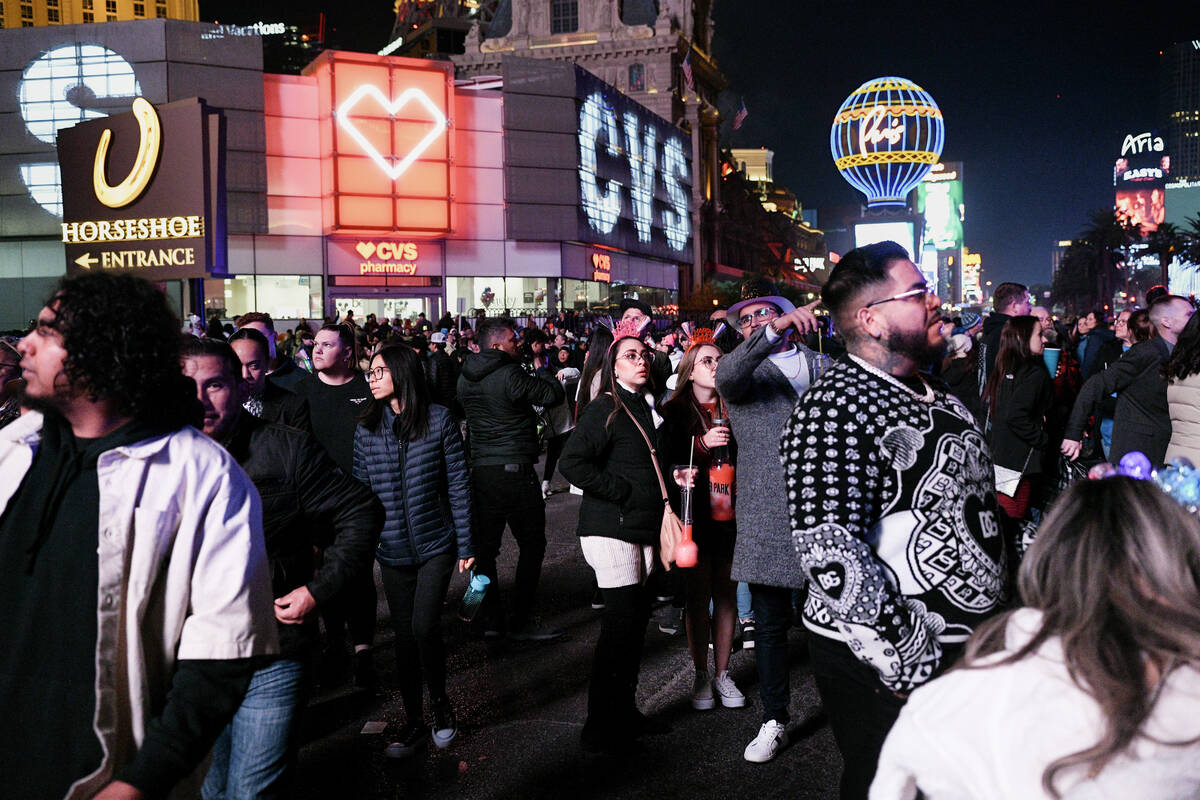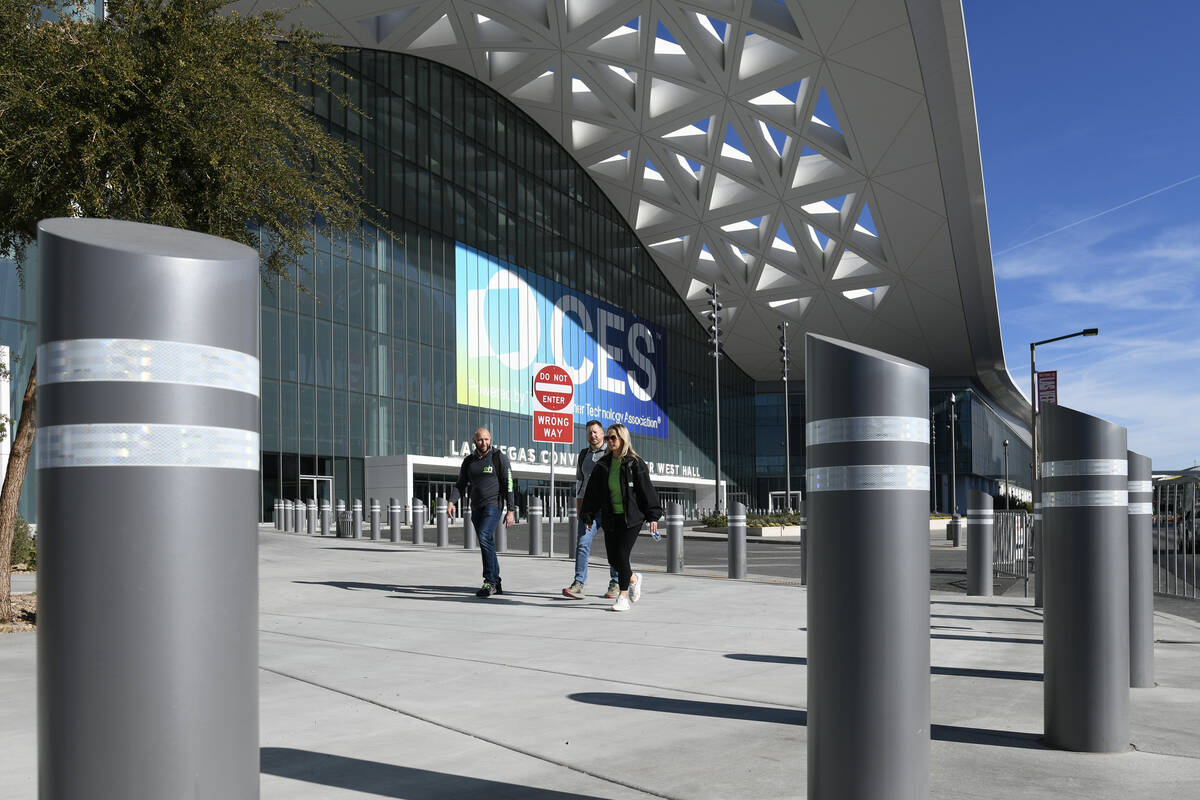What’s been done to keep people safe from vehicle attacks on Las Vegas Strip?
After Wednesday’s attack in which a white pickup truck sped down New Orleans’ iconic Bourbon Street, killing 14 people, locals and visitors alike might wonder what security measures are in place to prevent a similar horrific situation from unfolding on the Las Vegas Strip.
Following vehicular terrorist attacks around the world and a Strip car ramming that injured three-dozen pedestrians in December 2015, Clark County moved to make the tourist corridor safer by installing thousands of steel posts that dot Las Vegas Boulevard.
In 2018, the county began installing 6,000 bollards along the Strip, at a cost of about $40 million so far. Each weighs more than half a ton and is able to withstand a head-on collision from a 15,000-pound vehicle traveling 50 mph, according to officials. They are also there to prevent vehicles from jumping onto the sidewalks on any given day.
“As new development comes to the resort corridor, any plans that alter the current pedestrian protection will be required to include pedestrian protection measures in their design,” a Clark County spokesperson said in an email Friday.
Unlike Las Vegas’ bollards, New Orleans’ are removable, according to the Associated Press. Some were being replaced at the time of the attack, leaving security gaps.
Then, hours after the French Quarter attack, a Cybertruck carrying fireworks and fuel detonated outside Las Vegas’ Trump International hotel, according to the Metropolitan Police Department, prompting initial concerns that the Cybertruck blast had been a possible terrorist attack.
The Tesla vehicle’s lone occupant, Matthew Livelsberger, 37, had fatally shot himself in the head. Sheriff Kevin McMahill said investigators believe the detonation and suicide were simultaneous. Police were investigating a letter Livelsberger purportedly sent in which he said his actions weren’t a terrorist attack, but a “wake up call.”
Seven other people suffered minor injuries in the blast.
In hours and days after the two incidents, FBI officials said New Orleans attacker, Shamsud-Din Jabbar, had acted alone and aligned himself with the Islamic State group, and that there didn’t appear to be any evidence of any link between that attack and the Cybertruck blast. Authorities also said they hadn’t seen any evidence of a connection between Livelsberger and a terrorist organization.
‘The world is not a safe place’
Amanda Bellarmino, an assistant professor at UNLV’s William F. Harrah College of Hospitality, said making the resorts even safer is a challenge that executives should continually address. Guests should also pay attention to things that don’t seem normal, she said.
“Hotels and casinos should definitely have contingency plans for terrorist attacks, and most probably do,” Bellarmino wrote in an email to the Las Vegas Review-Journal.
She added: “I believe that we are still a very safe destination, but the world is not a safe place. All of us should be cautious and report anything we see that is suspicious.”
Before police disclosed Livelsberger’s purported letter, Bellarmino said: “I think that the Cybertruck incident implies that the driver was unable to drive into the crowds as our city had the proper precautions to prevent him from driving into the crowds on the Strip.”
During New Year’s Eve festivities each year, a portion of Las Vegas Boulevard is closed to vehicular traffic as tens of thousands of people descend on the Strip. Thousands more revelers ring in the new year at downtown Las Vegas’ Fremont Street Experience, where roads that intersect with the canopy are also closed.
Metro and its local, state and federal law enforcement partners guard the celebrations with a plethora of staff and technology, and officials said they expected over 400,000 people to come out for New Year’s celebrations on the Strip and in downtown Las Vegas.
‘Work diligently together’
Las Vegas spokesperson Jace Radke said the city did not want to disclose specific details about its security precautions “for obvious reasons.” He noted, however, that the city has increased safety improvements like large concrete bollards at pedestrian areas.
Councilwoman Victoria Seaman told the Review-Journal Friday that she’s confident with Metro’s and the city’s department of public safety preparations for special events.
“Unfortunately, other events, such as the current tragedy in New Orleans and the Trump hotel, can teach us more about prevention,” she said in a statement. “I believe that elected officials and law enforcement can work diligently together to continue to keep our city safe.”
Seaman said she would rather see officials be proactive instead of reactive.
Two Strip tragedies
The county took action after Paris Morton — previously known as Lakeisha Holloway — drove onto a sidewalk in front of Paris Las Vegas and Planet Hollywood Resort days before Christmas 2015, killing an Arizona woman.
Prosecutors accused Morton of intentionally driving up the sidewalk while impaired on marijuana. After going through multiple competency evaluations, she’s scheduled to go to trial later this year on charges that include murder and attempted murder.
A decade earlier, a California man mowed down 14 people with a Buick sedan near the old Bally’s resort, now the Horseshoe Las Vegas. Three tourists were killed.
Stephen Ressa, who told police he thought the victims were “demons” who were trying to kill him, is serving a 100-year prison sentence.
Metro and the county also work with private resort security so there is patrolling and enforcement coverage, and to ensure quick response times and medical services, according to the county.
Pedestrians can mostly only cross the boulevard on bridges.
“This partnership has been highlighted in the quick response times by both (Metro) and (the fire department) during recent high-visibility incidents such as the truck explosion and the stabbing incident that occurred in 2022,” the county said in a statement, “though these are just two examples of what is a routine response to those in need.”
Metro and the Nevada Resort Association, an advocacy group for the gaming and resort industry, supported and “worked closely” to implement the bollards.
“Protecting employees and visitors is always the resort industry’s highest priority,” said Virginia Valentine, the association’s president and CEO in a statement. “Our members have robust protocols in place to ensure a safe environment, including security and surveillance measures which are unseen by the public or are kept confidential for maximum effectiveness.”
Valentine added: “Bollards were immediately embraced by our members, some of whom had already added protective barriers into their hardscaping, Clark County and (Metro).”
This wasn’t the first time officials took action locally following high-profile tragedies. After the Oklahoma City bombing in 1995 that killed 168 victims, the federal government built a new courthouse downtown with a blast-resistant curtain wall — a first at the time.
The building opened in 2000.
In a press conference Wednesday, McMahill was also asked if police need to reexamine security procedures after the Cybertruck blast.
“We were very successful the night before. I’m surprised this happened, to be quite frank with you, and that’s certainly something we’re going to have to look at,” McMahill said. The sheriff also said Thursday that he’s “confident in the safety of our community as we move forward.”
If you’re thinking about suicide, or are worried about a friend or loved one, help is available 24/7 by calling or texting the Lifeline network at 988. Live chat is available at 988lifeline.org. Additionally, the Crisis Text Line is a free, national service available 24/7. Text HOME to 741741.
Contact Ricardo Torres-Cortez at rtorres@reviewjournal.com. Review-Journal staff writer Richard N. Velotta contributed to this story.



